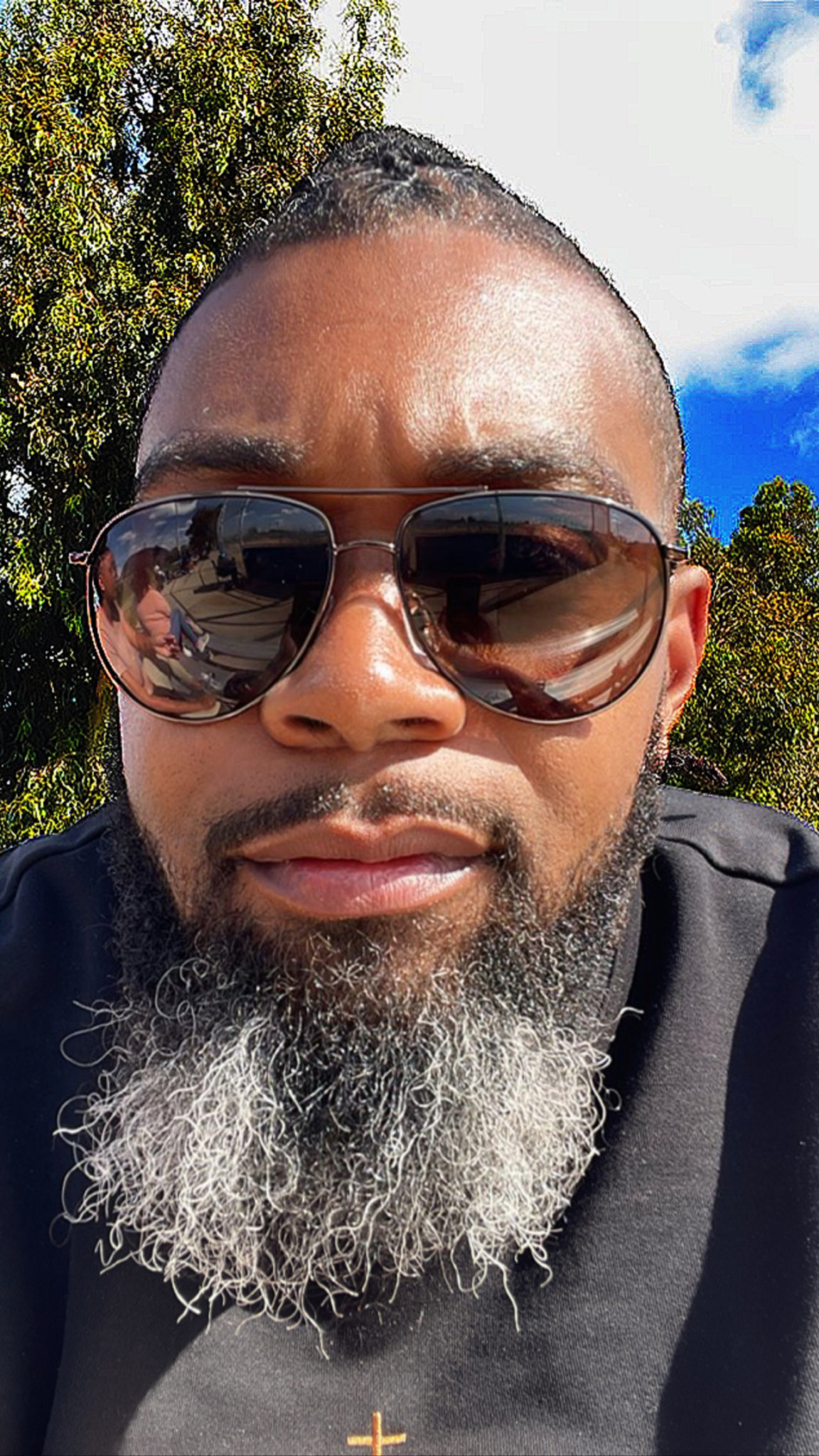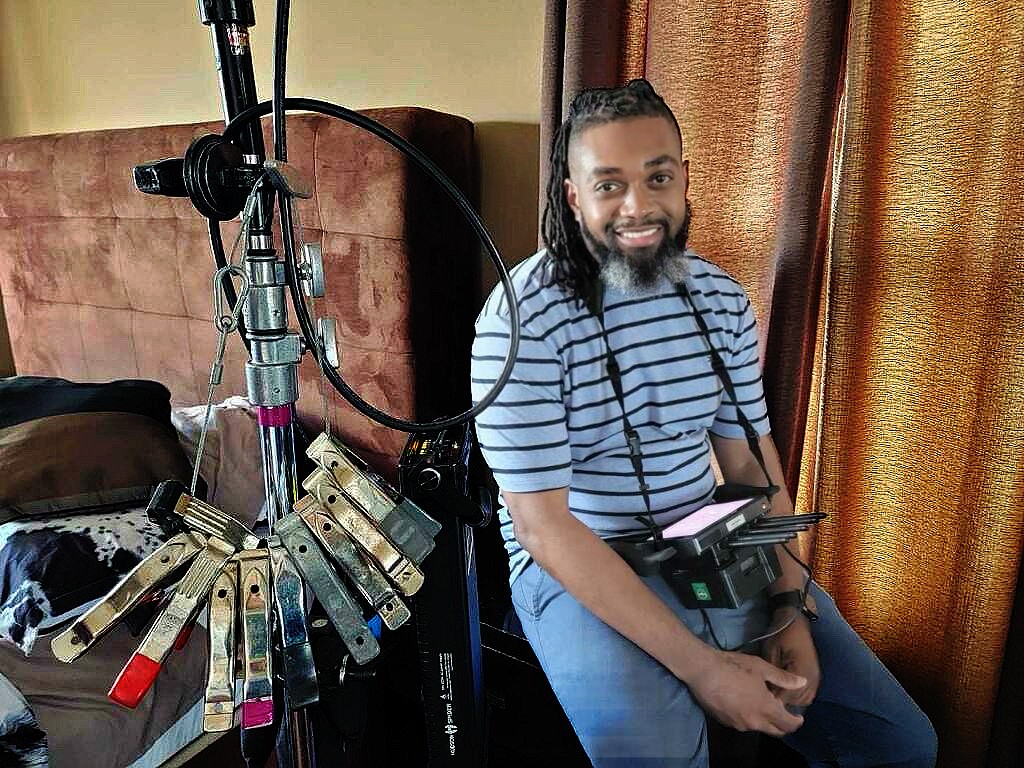Alright – so today we’ve got the honor of introducing you to Millard Walton. We think you’ll enjoy our conversation, we’ve shared it below.
Millard, thanks for joining us, excited to have you contributing your stories and insights. Can you share an important lesson you learned in a prior job that’s helped you in your career afterwards?
The most important lesson I’ve learned came when I was working as a warehouse manager at Amazon — a job I took during a time in my life when I felt like I had failed.
I’d spent over a decade running my family’s homeless shelter, The House of Hope, a place my grandfather and I built our lives around. I started working there at 12, ran it by 24, and gave it everything I had until I was 35. I saw it as my purpose. But after watching it slip away due to internal challenges I couldn’t stop, I carried guilt. I felt like I let my family — and legacy — down.
So I went to Amazon, thinking I was starting over. I didn’t have a degree, but I moved from Level 1 to Level 6 faster than anyone they’d seen. The truth is — I already knew how to manage people. I had been doing it since I was a kid. But what changed everything was when I started bringing storytelling into the workplace.
See, I was always a creative. I wanted to be a filmmaker. And I thought that dream had to be quiet. But I started making internal content at Amazon — funny safety videos, training characters, team challenges — stuff that helped people learn faster and laugh while they worked. It worked. Productivity soared. People engaged. And our building broke records.
That’s when I realized: my gift wasn’t just stories — it was knowing how to teach people through story. Not just customers, but employees. Not just for entertainment, but for transformation.
Since then, I’ve built my own business by leaning fully into that — helping people learn and grow by telling stories in their language.
The lesson? Trust your instincts. Even when it doesn’t look like the world has a lane for your gift — carve one. Especially when it’s rooted in service.
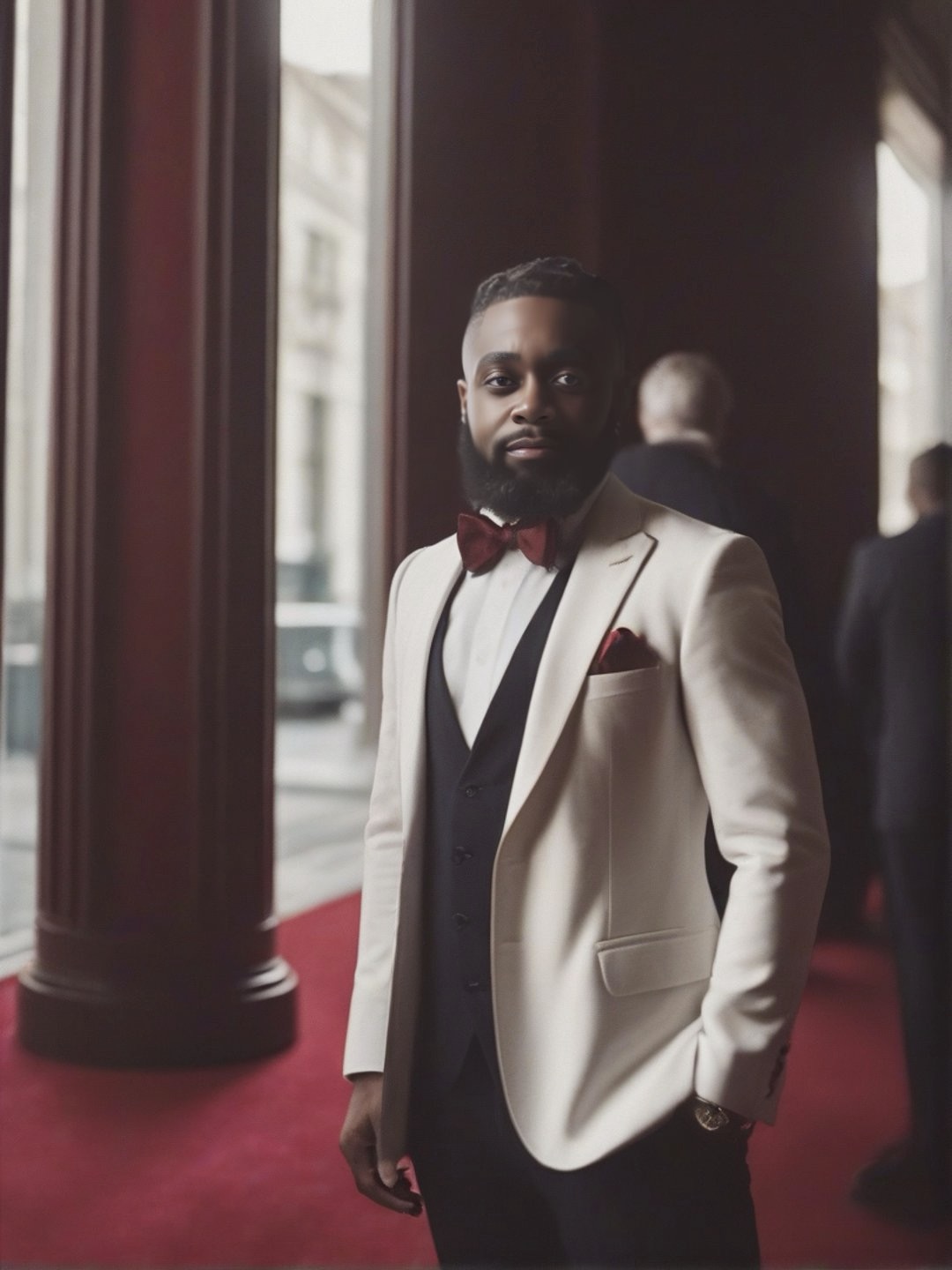
As always, we appreciate you sharing your insights and we’ve got a few more questions for you, but before we get to all of that can you take a minute to introduce yourself and give our readers some of your back background and context?
MILLARD S. WALTON IV | STORYTELLER. STRATEGIST. REBUILDER OF CULTURE.
I’m a storyteller. That’s who I am before anything else. But it took pain, loss, recovery, and relentless reinvention to find that truth—and own it.
I started my journey in service. I was 12 years old, working at The House of Hope, a homeless shelter my grandfather once lived in before he went on to lead it. By 24, I was the director, running the shelter full-time while learning the ropes of nonprofit survival, people management, and community leadership. That job taught me how to see people deeply. It also taught me how to survive while serving.
At 19, I was in a near-fatal car accident. My jugular was cut by a broken steering wheel, my tongue was split in half, and I had to run a mile for help while bleeding out. I woke up in a hospital to two realities: one, that I had survived; and two, that I was going to be a father. That moment rewired me. I started reading obsessively—8 hours a day—and before long, I wasn’t just consuming stories. I started writing them.
My first novel, Friend or Foe, reached the desks of HBO execs and almost got optioned. I taught myself screenwriting in two weeks to meet the moment. That same exec told me I wrote like a director. That stuck. So I built myself into one—without a film school, without a network. I just bought cameras, partnered with other hungry artists, and used my community as my classroom.
From there, I shot everything from silent comedies (Dusty) to hood classics (Friday the Web Series), to fashion films (Attention Whores) and community documentaries (The Struggle Within, a project that taught me I had PTSD—something I didn’t even know I was carrying). I also helped my wife, fashion creator @muchloveday, co-launch What’s Haute?—our digital fashion series and podcast.
We create web-series, documentaries, fashion films, marketing campaigns, and community brand builds for clients and partners who want to use story as a tool for cultural power and business growth.
We’re not just a studio. We’re an engine for economic freedom.
We pair creators with brands, businesses with content, and non-profits with new visibility.
We teach classes to small businesses every week in Leimert Park at our Lion Buttaz Marketplace.
We partner with comedy legends at Black Hollywood to build viral sketch shows and barbershop sitcoms.
We don’t wait for greenlights. We tell our stories now—with the tools we already have.
What sets me apart?
I tell stories people feel.
Not because they’re flashy—but because they’re true.
And because I’ve lived enough to know what matters.
I’ve raised dry cleaner profits by 400% using story.
I’ve helped TK build Lion Buttaz into a full lifestyle brand.
I’ve created viral campaigns, produced for Juhahn Jones’ Juda Network, and I still take the time to teach basic marketing to street vendors who just need a little help.
Because at the end of the day—I believe storytelling is a sacred calling.
I’m most proud that my oldest daughter, who I learned about in the hospital after almost dying, is now in college studying to be a writer just like me.
If you want to know who I am, just look at what I build:
• I build creators.
• I build businesses.
• I build community.
• And I build futures using nothing but vision, voice, and a camera phone.
FreeMynds Studios is the future of storytelling.
We are reclaiming media—one web series, one brand, and one block at a time.
So if you want your story told like it matters, join us.
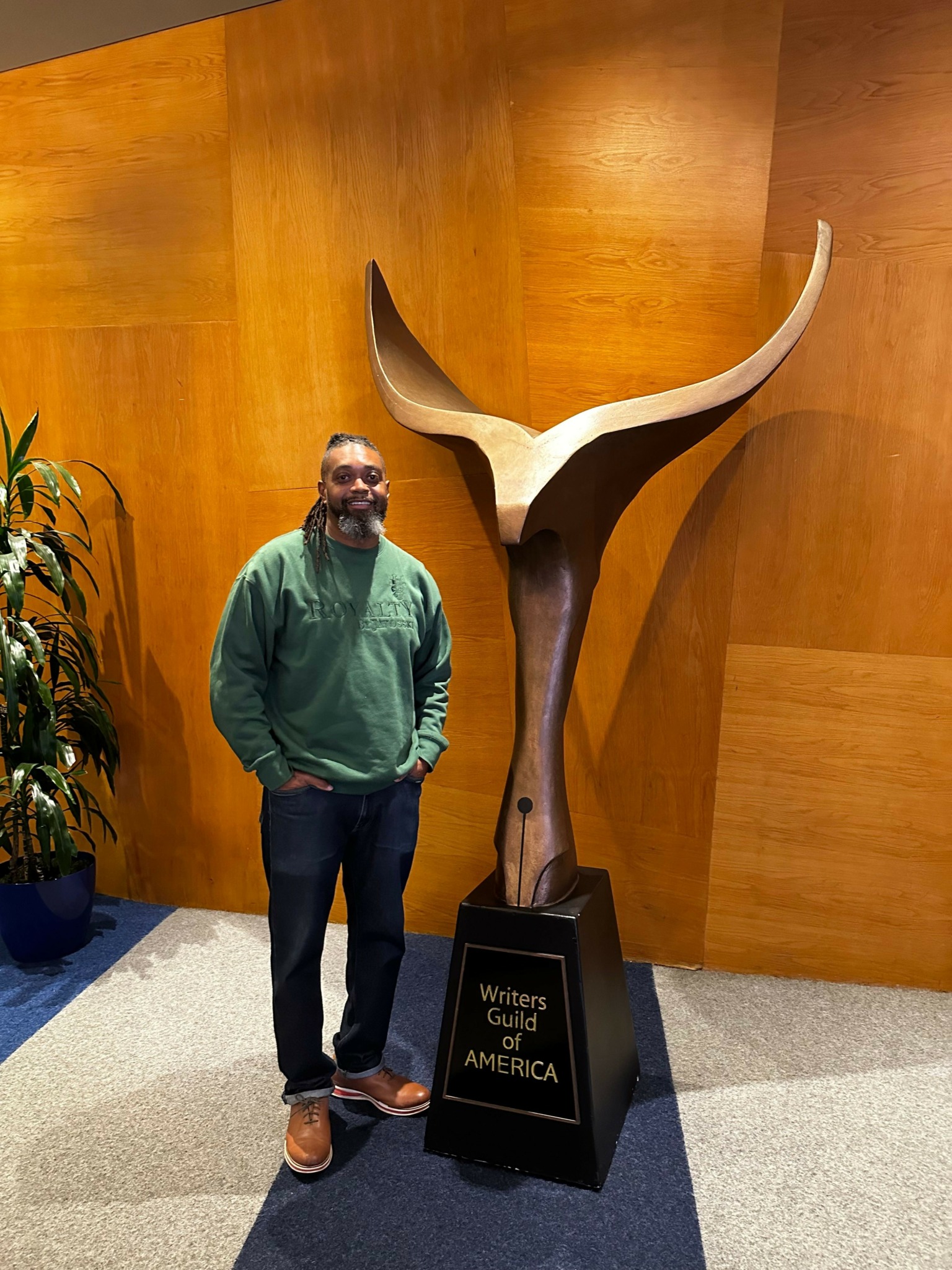
Any advice for growing your clientele? What’s been most effective for you?
Honestly? My greatest strategy was getting out of my own way.
For years, I was behind the scenes—building brands, directing films, leading teams, creating stories that moved people. But I wasn’t allowing people to see me. Not really.
Part of that came from my accident at 19. I went through a windshield, had my jugular sliced, tongue split, and lost teeth that never grew back right. I carried that for years—quietly. And when I got diagnosed with type 2 diabetes, it made it worse. My body was breaking down, and so was my confidence.
But then I flipped it.
I got my health back on track—dropped from 290, started moving different. And more importantly, I decided to show up. To host. To speak. To let people feel me in the room.
Because here’s the thing: when people can see you, they can believe in you. Not just the work. You.
So my strategy now is presence. I don’t hide. I pop out. I host shows. I shake hands. I stay in the rooms where I can create impact. And I tell the truth—because I’ve done the work.
So that’s my answer: Be seen. Be ready. Be undeniable.
And if you’ve done the work, don’t whisper about it.
Don’t be loud—but make sure they hear you.
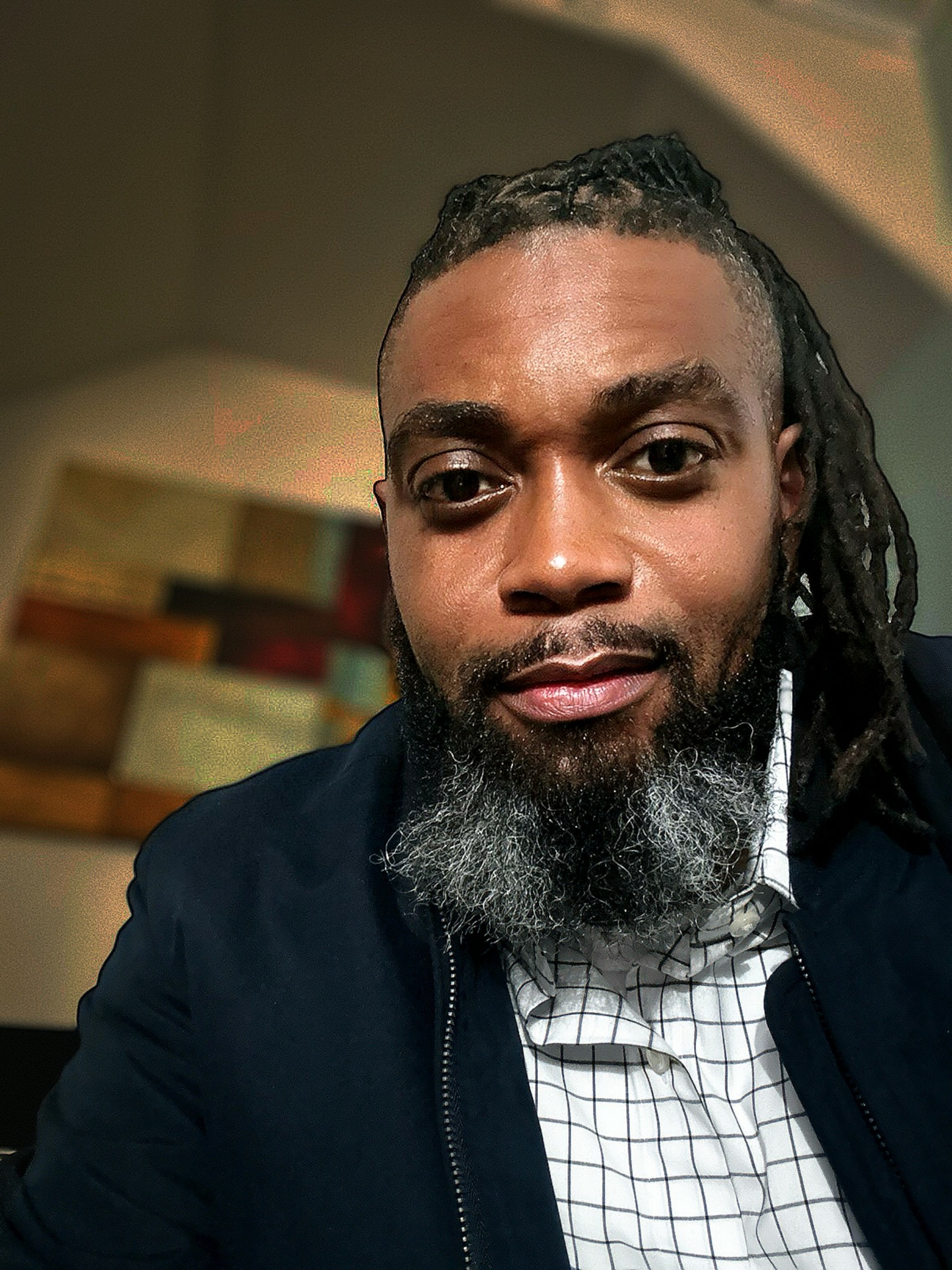
Any fun sales or marketing stories?
One of the biggest risks I’ve ever taken in business—maybe even in life—was launching my first fashion film event, Attention Whores. It was an idea that came to me after discovering the concept of fashion films one night on Vimeo. I’d never seen storytelling and fashion merge like that before, and something in me lit up.
The vision came quick: models portrayed like streetwalkers, but instead of sex, the men who picked them up carried cameras. Their faces hidden behind ski masks. Their power came not from money—but megapixels. I wanted to say something about value, visibility, and women—and I wanted my wife’s fashion line to be the star of it all.
We shot the whole thing for $300. Two former America’s Next Top Model contestants joined the cast. My wife, Dannay, played the lead. And when we were done, we tried to take it to Cannes.
We didn’t get in.
But I didn’t let that be the end of the story.
I was walking on the beach with my wife when my late mentor, Mario Smith, called. I told him I had a crazy idea: What if we threw our own event? Rented a yacht. Created an immersive fashion film experience. He said yes. No hesitation. Said he believed in me. And he funded it.
Now, here’s where the real risk kicked in.
We had no event experience. No major money behind us. But I knew how to tell a story—and I knew how to make people feel like they were inside of one. So we crafted a full-on interactive art show:
• $100 tickets on a luxury yacht
• Models from the film walking the decks in character
• Men in ski masks with disposable cameras taking photos of guests
• Live painters, massage artists, local designers, liquor sponsors
• Even Jackie Christie (yes, that Jackie Christie) joined as a guest host
It was wild. It was beautiful. And it sold out.
We made history. The first Black fashion film event of its kind.
And when it was over—after all the fear, the risk, the sleepless nights—I laid in bed next to my wife and said, “No matter what happens in life, we already made it.”
That night wasn’t about clothes or cameras.
It was about proof.
Proof that if we can dream it, we can build it.
That’s the FreeMynds way.
And it’s why my clients and partners trust me to take risks that most people won’t even imagine.
Contact Info:
- Instagram: @freemynds
- Facebook: @freemynds
- Youtube: @freemyndsstudio
